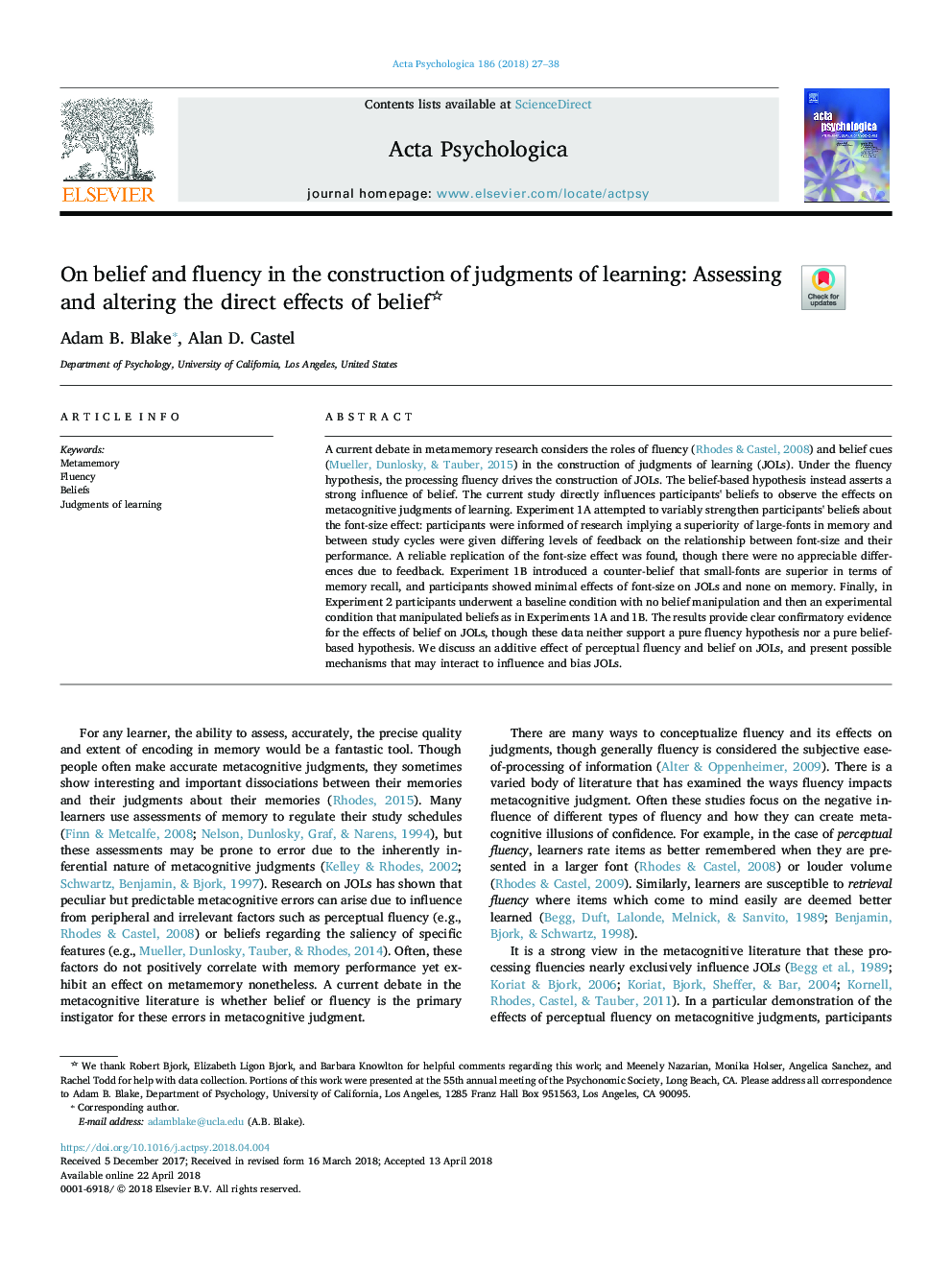| Article ID | Journal | Published Year | Pages | File Type |
|---|---|---|---|---|
| 7276676 | Acta Psychologica | 2018 | 12 Pages |
Abstract
A current debate in metamemory research considers the roles of fluency (Rhodes & Castel, 2008) and belief cues (Mueller, Dunlosky, & Tauber, 2015) in the construction of judgments of learning (JOLs). Under the fluency hypothesis, the processing fluency drives the construction of JOLs. The belief-based hypothesis instead asserts a strong influence of belief. The current study directly influences participants' beliefs to observe the effects on metacognitive judgments of learning. Experiment 1A attempted to variably strengthen participants' beliefs about the font-size effect: participants were informed of research implying a superiority of large-fonts in memory and between study cycles were given differing levels of feedback on the relationship between font-size and their performance. A reliable replication of the font-size effect was found, though there were no appreciable differences due to feedback. Experiment 1B introduced a counter-belief that small-fonts are superior in terms of memory recall, and participants showed minimal effects of font-size on JOLs and none on memory. Finally, in Experiment 2 participants underwent a baseline condition with no belief manipulation and then an experimental condition that manipulated beliefs as in Experiments 1A and 1B. The results provide clear confirmatory evidence for the effects of belief on JOLs, though these data neither support a pure fluency hypothesis nor a pure belief-based hypothesis. We discuss an additive effect of perceptual fluency and belief on JOLs, and present possible mechanisms that may interact to influence and bias JOLs.
Related Topics
Life Sciences
Neuroscience
Cognitive Neuroscience
Authors
Adam B. Blake, Alan D. Castel,
